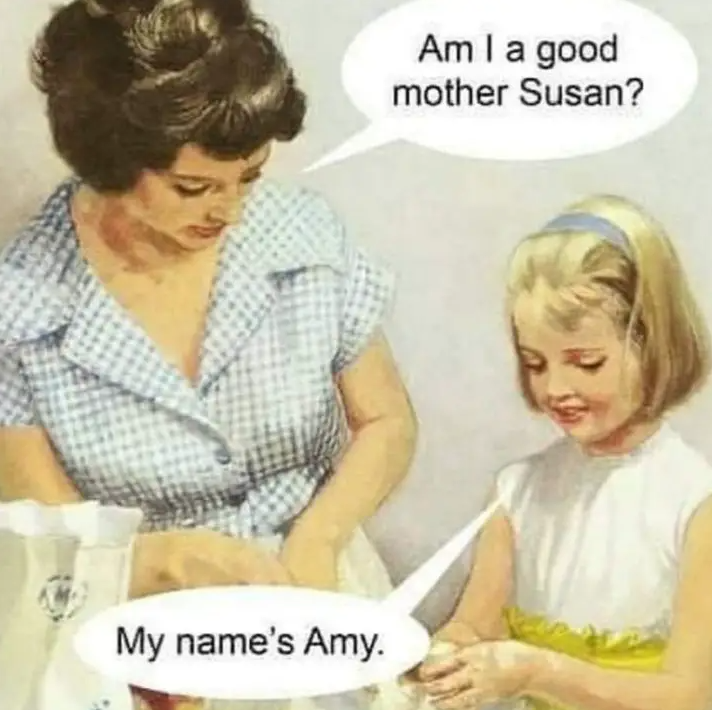Mothers possess an incredible power to shape our lives. Experts even believe that our relationship with our mom affects us way before we were born.
As it’s still Mother’s month and as I’ve been binge-watching criminal documentaries these days, I noticed that a problematic mother-child relationship was often highlighted in most narratives. On the other side of the spectrum, many successful individuals credit how they turned out to be as being raised by an exceptional mother.
Across the globe, there are many cultural perspectives on the importance of the role of a mother in a child’s life.
Many Native American cultures place significant importance on the role of mothers in their communities. They view mothers as the nurturing and guiding forces, responsible for passing down cultural traditions, values, and wisdom to the younger generation. The mother’s role is often seen as integral to maintaining the overall well-being and harmony of the community.
Meanwhile, in Chinese culture, the role of the mother is highly regarded and respected. Mothers are seen as the primary caregivers and educators of their children, responsible for instilling values such as filial piety, respect for elders, and hard work. Chinese culture emphasizes the mother’s influence in shaping the character and success of her children.
In many Latin American cultures, mothers hold a central role in family life. They are viewed as the emotional pillars, providing unconditional love, support, and guidance to their children. The mother’s influence is often seen as instrumental in transmitting cultural values, fostering strong family bonds, and shaping the child’s sense of identity and belonging.
So essentially, I think that we can say, whether one ends up behind bars or soaring beyond the stars, the influence of mothers can play a significant role in one’s journey.
The Maternal Connection
Psychology has long delved into the effects of the maternal relationship on an individual’s life. Research has shown that the quality of a mother-child bond can have profound consequences for personal development, emotional well-being, and even future achievements.
There is this concept of the “mother wound” in psychology that refers to the emotional and psychological pain that can result from a person’s experience of a problematic or challenging relationship with their mother or primary caregiver. It is a term often used to describe the deep and lasting impact that early mother-child dynamics can have on an individual’s sense of self, emotional well-being, and interpersonal relationships.
The mother wound encompasses various experiences and dynamics that can contribute to emotional distress. These may include:
Emotional Neglect
When a mother is emotionally unavailable, dismissive, or lacks empathy towards her child’s emotional needs, it can lead to feelings of abandonment, unworthiness, and an inability to trust or form secure attachments later in life.
Over-Enmeshment or Codependency
In contrast to neglect, an overly enmeshed relationship with a mother can lead to a lack of personal boundaries and autonomy. This dynamic can result in difficulties in establishing healthy relationships, setting boundaries, and developing a strong sense of self.
Criticism and Rejection
Constant criticism, rejection, or a lack of acceptance from a mother can deeply impact an individual’s self-esteem, self-worth, and confidence. It may lead to feelings of unworthiness, self-doubt, and a fear of rejection in relationships.
On a side note, did you know dad jokes can actually help children develop into healthy adults? Humour serves as a coping mechanism, enabling children to discover lightness and solace during tough moments. Dad jokes foster resilience and nurture the capacity to find humor amidst adversity.
Absence or Loss
The absence or loss of a mother figure, whether due to death, abandonment, or other circumstances, can create feelings of grief, loss, and longing. This absence can leave an emotional void and impact the individual’s ability to form secure attachments, deal with change, or trust others.
The mother wound can have significant implications for an individual’s emotional well-being and interpersonal functioning. It can manifest as challenges in forming healthy relationships, difficulties with self-esteem, unresolved emotional pain, and patterns of behaviour that reflect past wounds.
Behind Bars: Criminals and Maternal Influence
While it’s essential to acknowledge that not all individuals who find themselves behind bars have problematic relationships with their mothers, studies have shed light on the impact such relationships can have on criminal behaviour. Understanding these factors provides valuable insights into the complexities of criminality.
One example is the case of Ted Bundy, one of the most infamous serial killers in history, which highlights the potential impact of a troubled maternal relationship. Bundy’s mother gave birth to him as an unmarried teenager and reportedly kept his true parentage hidden. These circumstances, coupled with an unstable family environment, have been considered contributing factors to his violent behaviour.
Another criminal with a problematic relationship with their mother is Jeffrey Dahmer. Dahmer was a notorious American serial killer and sex offender who committed a series of gruesome murders between 1978 and 1991. His crimes involved rape, dismemberment, and necrophilia.
During his childhood, Dahmer had a strained relationship with his mother, Joyce Dahmer. His parents’ marriage was tumultuous and eventually ended in divorce. Dahmer’s mother struggled with mental health issues, including depression, and she was often absent from his life due to work commitments.
According to reports, Dahmer felt neglected and isolated during his upbringing. He described feeling like an outsider within his own family. He also expressed a longing for attention, love, and connection with his mother. Dahmer’s troubled relationship with his mother and the absence of a nurturing and supportive environment is believed to have contributed to his disturbed psychological development.
It is important to note that while a problematic relationship with his mother is considered one factor among many in Dahmer’s case, numerous other complex factors may have contributed to his criminal behaviour. Psychological, genetic, and environmental factors interacted in his life, shaping his path towards violence and criminal acts.
While these examples demonstrate the potential influence of problematic maternal relationships on criminal behaviour, it’s crucial to note that numerous factors contribute to an individual’s path. Not all criminals have had challenging relationships with their mothers.
Beyond Stars: Successful Individuals and Maternal Support
On the other side of the spectrum, many successful individuals credit their accomplishments to the unwavering support and guidance of their mothers. These inspiring individuals are living testaments to the incredible power of maternal influence.
For instance, Michelle Obama, former First Lady of the United States, has repeatedly emphasized the impact her mother had on her life. Her mother’s love, encouragement, and belief in her abilities instilled a sense of resilience and empowered her to become a prominent advocate for education, health, and social issues.
Another example is Dwayne “The Rock” Johnson, the renowned actor, and former professional wrestler. Johnson frequently shares stories about his mother’s unwavering support and strength during challenging times. Her influence played a crucial role in shaping his determination and work ethic, propelling him to become one of the most successful entertainers today.
These examples highlight how a nurturing and supportive maternal presence can empower individuals to overcome obstacles, dream big, and achieve extraordinary success.
What do you think?

Mothers possess an incredible power to shape our lives, whether we find ourselves walking down a destructive path or reaching for the stars. Research indicates that the quality of the maternal relationship has a profound impact on an individual’s development, emotional well-being, and future achievements.
While challenging relationships with mothers can be contributing factors to criminal behaviour, success stories remind us of the transformative potential of a supportive and loving maternal presence. By recognising and harnessing the power of mothers, we can foster resilience, ambition, and a deep belief in our own capabilities.
So, let’s celebrate the remarkable moms who shape our lives, and remember that their love, guidance, and support can guide us from behind bars to beyond the stars.
If you have experienced a mother wound or grew up with an unloving mother, seek support from a therapist, practice self-compassion, build a supportive network, set boundaries, engage in inner child work, cultivate mindfulness and self-awareness, challenge negative beliefs, foster healthy relationships, practice forgiveness and letting go, and focus on personal development. Remember that letting go and healing takes time, so be patient and kind to yourself as you embark on your journey of healing and growth.
Remember also, that they are coming from their own challenging place. They may not have been equipped with the right amount of love and understanding themselves, and thus unable to provide these at the time you needed them.



No Comment